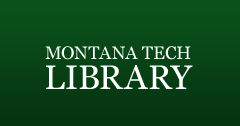Document Type
Article
Publication Date
Spring 3-2023
Abstract
Despite the burgeoning presence of open textbooks in higher education and their influences on courses, learners, and teachers, few studies have tracked their production as it unfolds, and none have addressed authors’ affective states and associated actions during open textbook construction. Open textbooks are freely available for use, and the length of the textbook genre and pressure to craft quality content may trigger emotional responses from authors during their creation, but without detailed accounts of open coursebook development from which to draw guidance, writers may resort to trial and error to sustain progress during their projects. To address the research gap and uncover insights that could be of practical use, this paper’s authors utilized concurrent verbalization and interviews to document the creation of their first textbook, an open corequisite volume that stresses the growth of effective study skills in tandem with workplace and academic writing skills, designed for first-year university students. Corequisites combine remedial and credit-bearing coursework to offer underprepared learners in the United States scaffolded supports as they work toward university graduation. Qualitative content analysis of data collected during the open textbook project revealed the authors employed conceptual and spatial organizational strategies as precursors for writing efforts; considered the facilitative effects of writing times on their emotional conditions and capacity to craft textbook material; recognized the benefits and drawbacks of operating in prolonged flow states; and engaged in incubation and physical activity to sustain writing momentum. This study addresses how novice textbook authors manage the rigors of deliberate practice during coursebook construction, frames open textbook writing as an experiential learning opportunity for educators, and offers implications for materials development training and research. Its findings may be of interest to educators, textbook authors, and those who study materials development, writing, or expertise, regardless of national context.
Recommended Citation
Atkinson, Dawn and Corbitt, Stacey, "“To discipline my writing process”: How newcomers to open textbook development moderate affective states and sustain momentum while writing" (2023). Writing. 1.
https://digitalcommons.mtech.edu/writing/1
Included in
Curriculum and Instruction Commons, Rhetoric and Composition Commons, Technical and Professional Writing Commons
